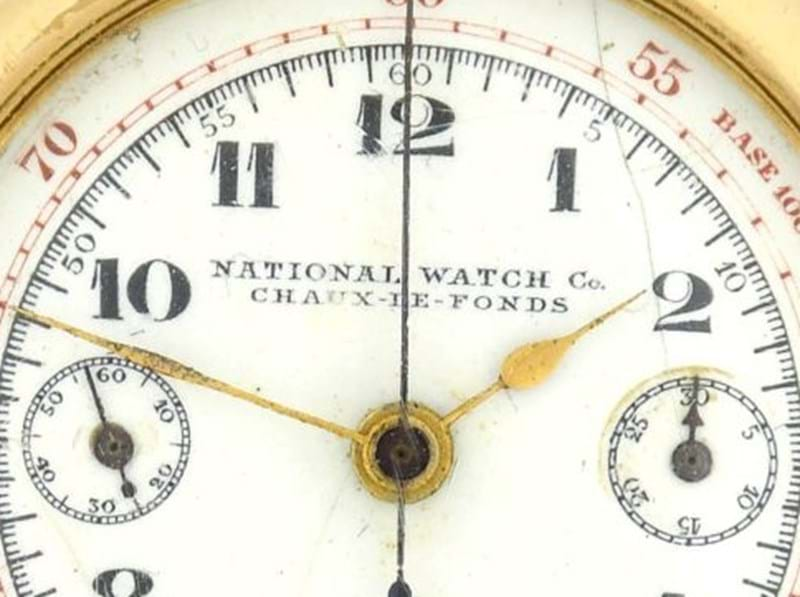Omega traces its roots back to 1848, when the young watchmaker Louis Brandt set up a workshop in his family home in La Chaux-de-Fond, a small village in Switzerland, and the brand was born. Passionate about precision, he strove to make the most accurate watches possible. Earning his reputation for producing fine quality watches, he soon became well-known.
After his death in 1879, the company was passed to his two sons, Louis-Paul and César, who both carried on their father’s legacy, moving the company now called Louis Brandt & Fils to the larger town of Biel or Bienne. In 1885, their first series-produced calibre was launched; the ‘Labrador’ featured technological advances and accurate timing. This was followed the world’s first minute-repeating wristwatch – a miniature version of pocket watch movements.

Omega: A Rare British Military Royal Air Force "Thin Arrow" Centre Seconds Wristwatch, signed Omega, ref: 2777-1, issued in 1953,
Sold for £4,200
By 1900, the company had officially rebranded to Omega and in this year, they won the Grand Prize at the Universal Exposition in Paris, the greatest honour given to any brand at the time, a testament to the technological advances achieved by the company.
First becoming associated with sports timekeeping in 1905, the company has had a strong history of sporting events, which continues to today.
Throughout the 20th century, the company has continued to strive for excellence, producing some of the world’s most iconic watch models for important events in history, from Art Deco masterpieces for the 1925 Exposition Internationale Des Arts Décoratifs Et Industriels Modernes in Paris to the first moon walk.

A Rare and Early Pre-Moon Stainless Steel Chronograph Wristwatch, signed Omega, model: Speedmaster, ref: 2915-1, 1957
Sold for £18,000
Omega were also one of twelve watchmakers that produced watches for the Ministry of Defence during the Second World War, known today as "Dirty Dozen" watches. Omega watches were also modified and re-issued to Royal Air Force pilots, which are known as the "Thin” and “Fat” Arrow RAF watches.

Omega: A British Military Royal Air Force Stainless Steel Centre Seconds Wristwatch, signed Omega, ref: 2777-1, known by collectors as the "53 Fat Arrow", issued in 1953
Sold for £1,200
Making their way into cultural history, too, Omega watches have appeared on many famous people in history and graced the wrists of numerous incarnations of 007 himself in Bond films.

Omega: A Limited Edition 'James Bond 007 Spectre' Automatic Calendar Centre Seconds Wristwatch, signed Omega, Master Co-Axial Chronometer, model: Aqua Terra Seamaster, ref: 23110422103004, number 14108 of a limited edition of 15007 pieces made, circa 2016
Sold for £4,000
KEY DATES IN THE HISTORY OF OMEGA
1932 Omega becomes the official timekeeper of the Olympic Games
1948 Omega Seamaster launched
1952 Omega Constellation launched
1957 Omega Speedmaster is introduced to time racing and sporting events
1965 Nasa chooses the Omega Speedmaster for use on its space missions
1967 Omega De Ville is launched
1969 Buzz Aldrin wears an Omega Speedmaster for the Apollo 11 mission, making it the first watch worn on the moon.
1970 Omega Ploprof, designed for professional divers, was launched

Omega: A Fine and Rare 18 Carat Gold Limited Edition Chronograph Wristwatch To Commemorate the Apollo XI Moon Landing, signed Omega, model: Speedmaster Professional, ref: 145022-69, Limited Edition number 690 of 1014 pieces made, 1969
Sold for £22,000
Omega watches are some of the most popular sought out by collectors at auction, resulting in excellent prices achieved.
To discuss buying or selling watches at auction, contact Adam Wasdell.











